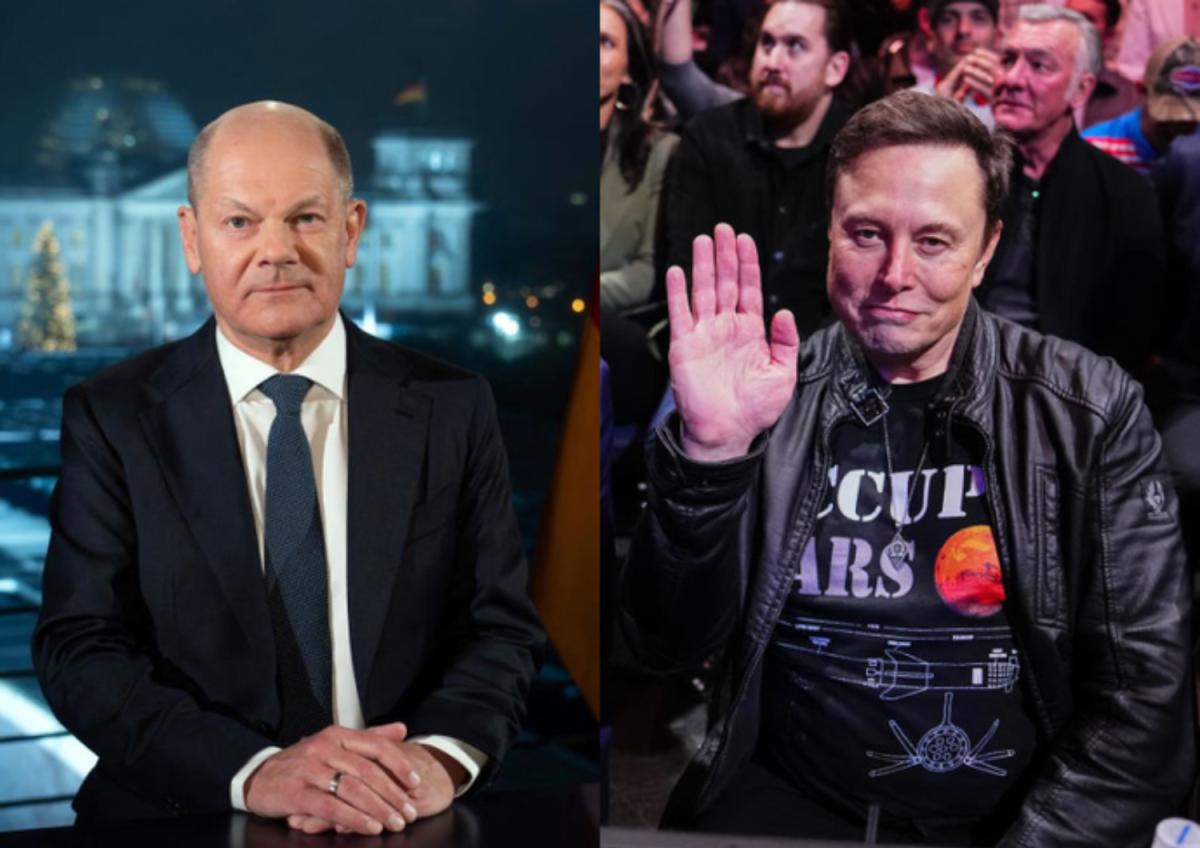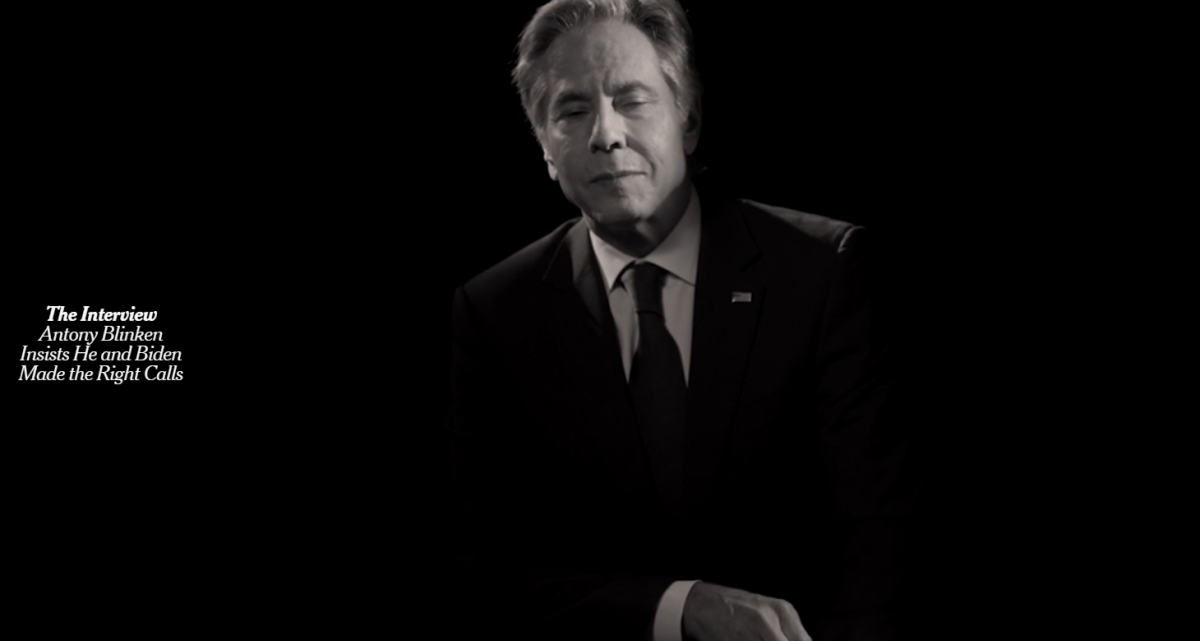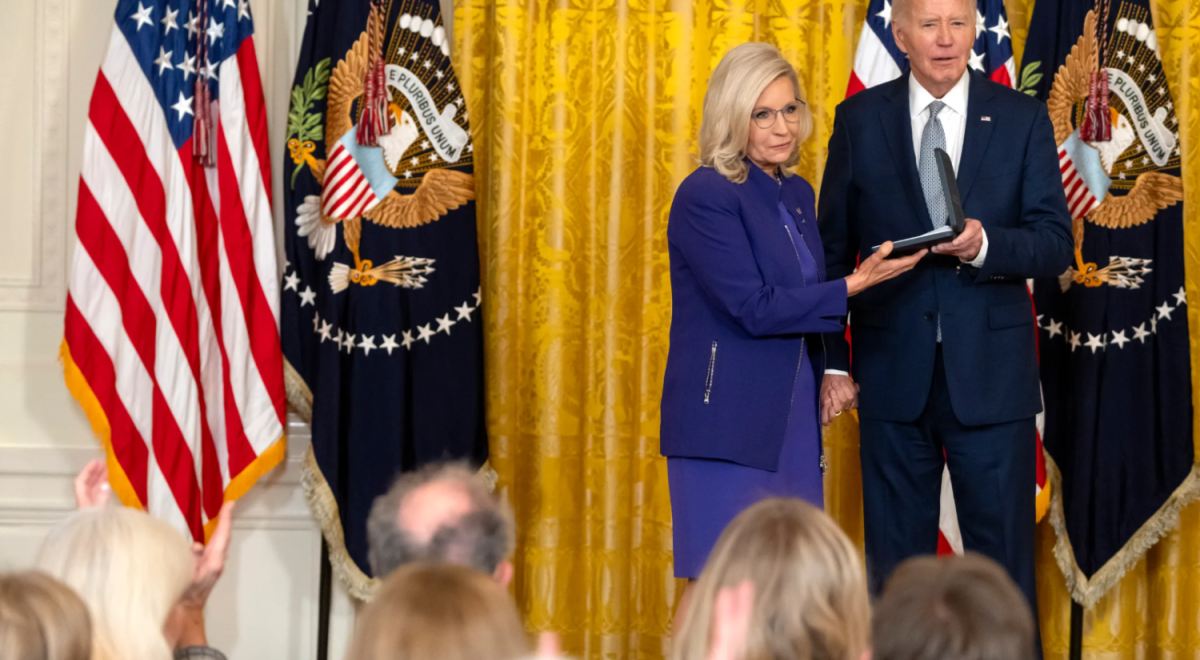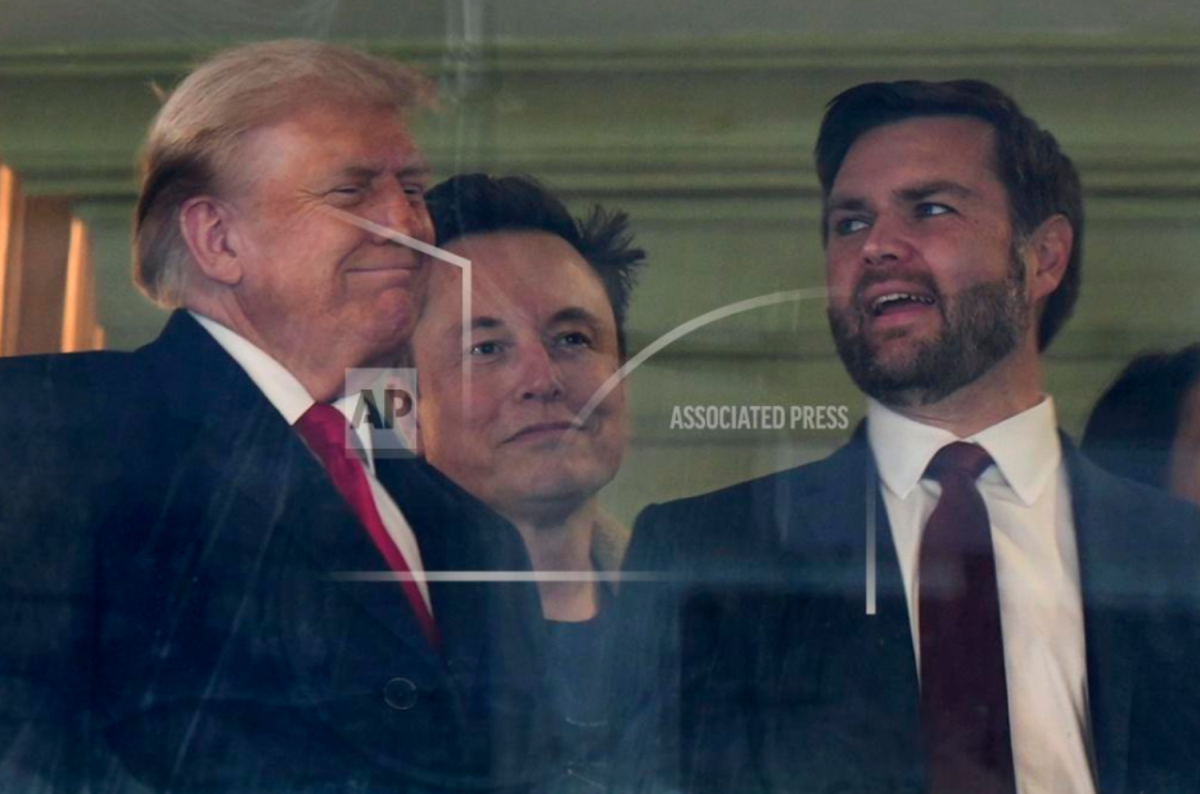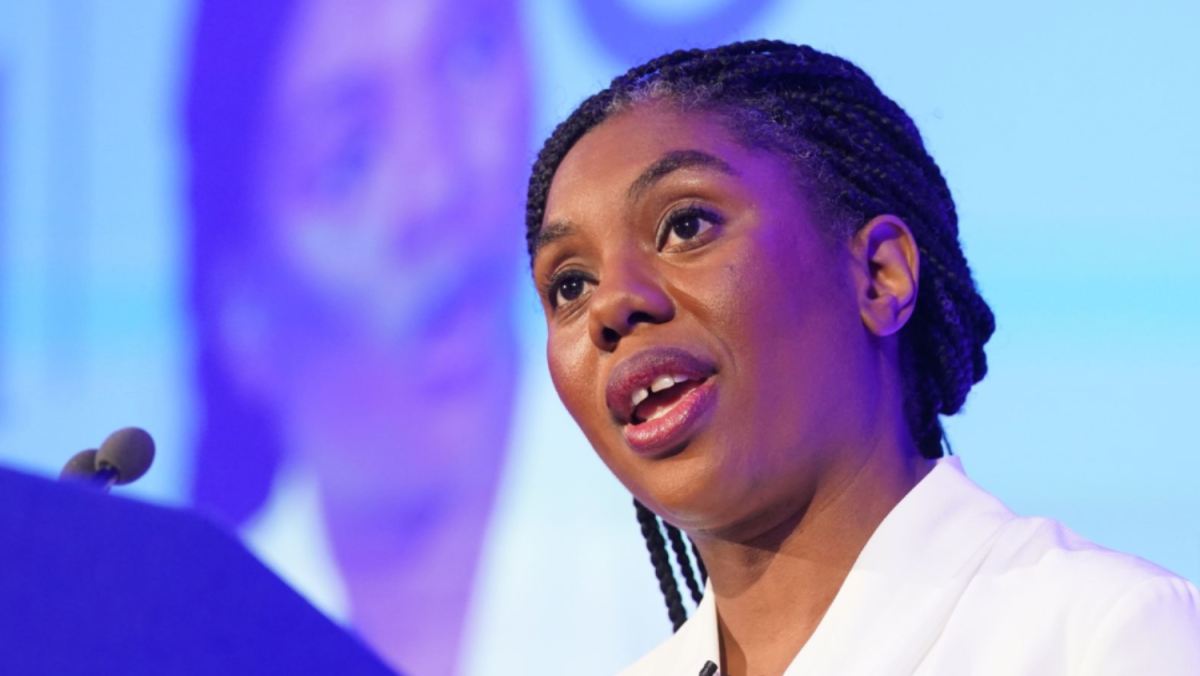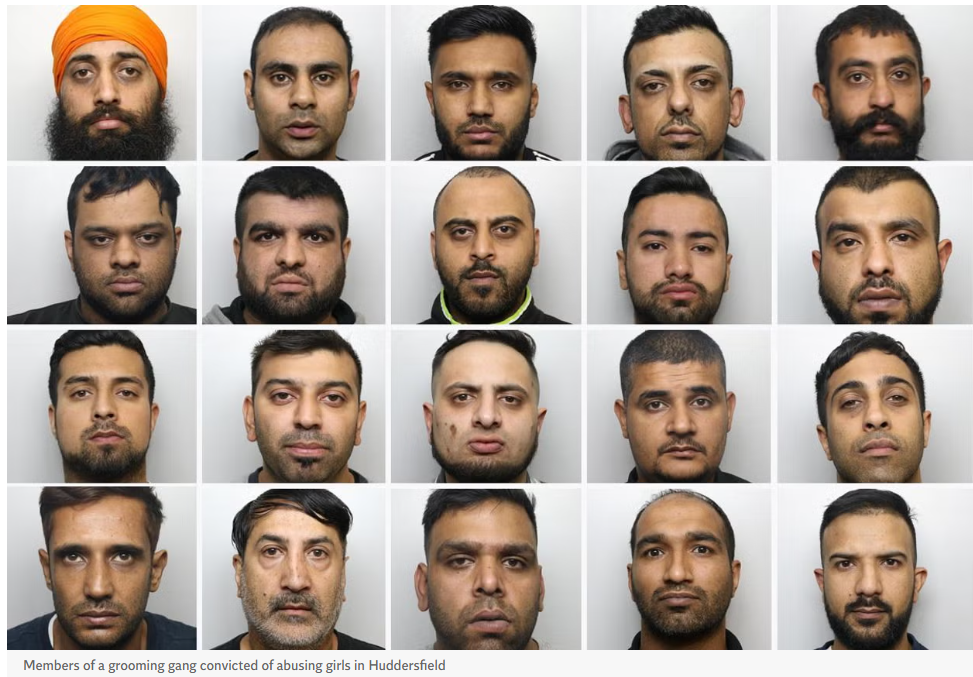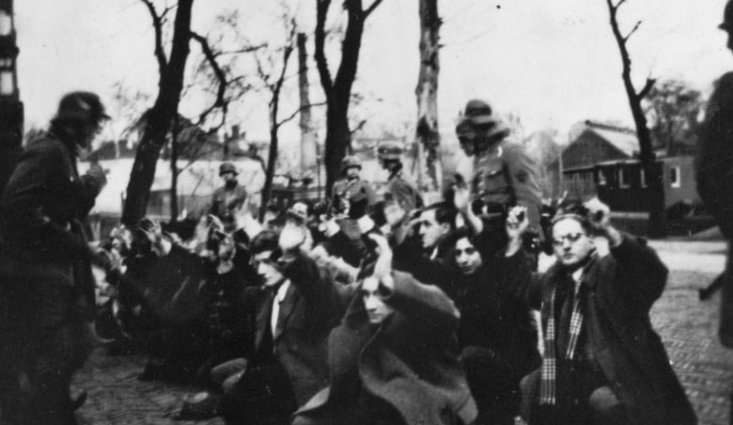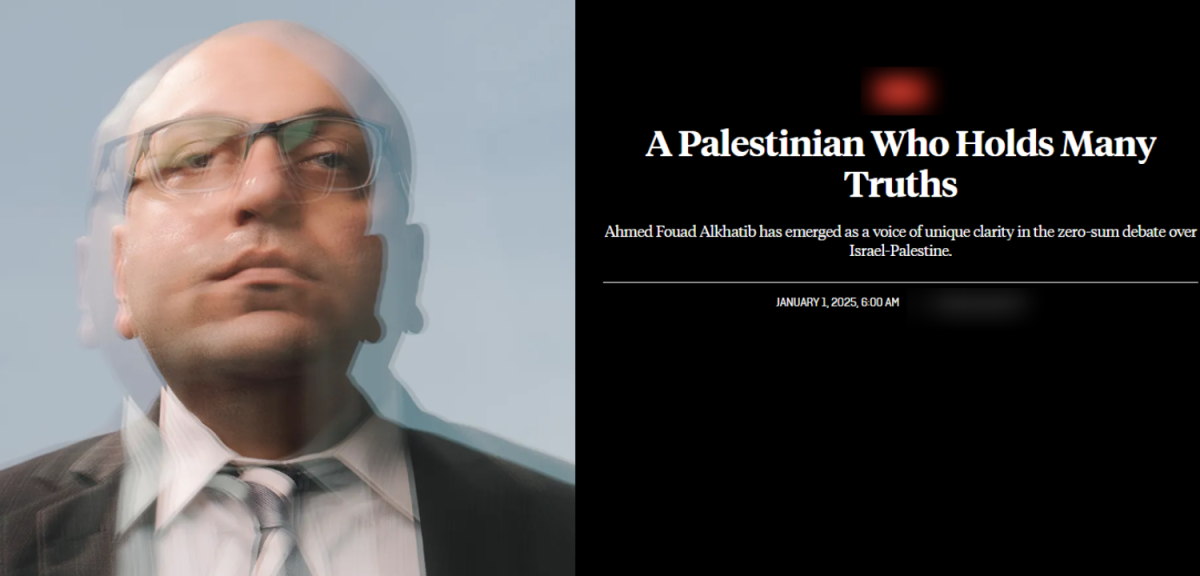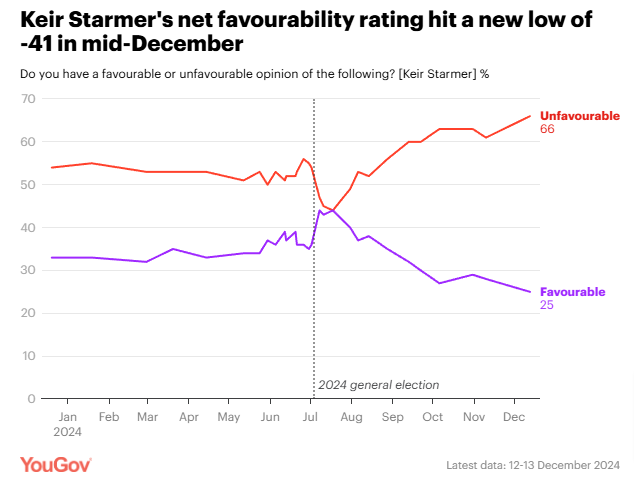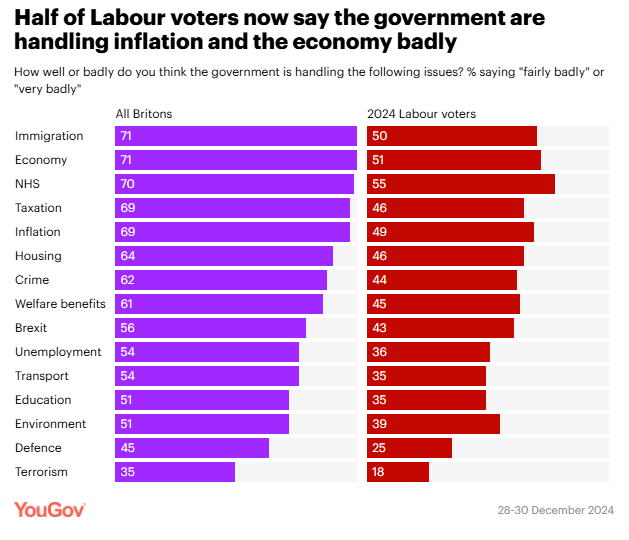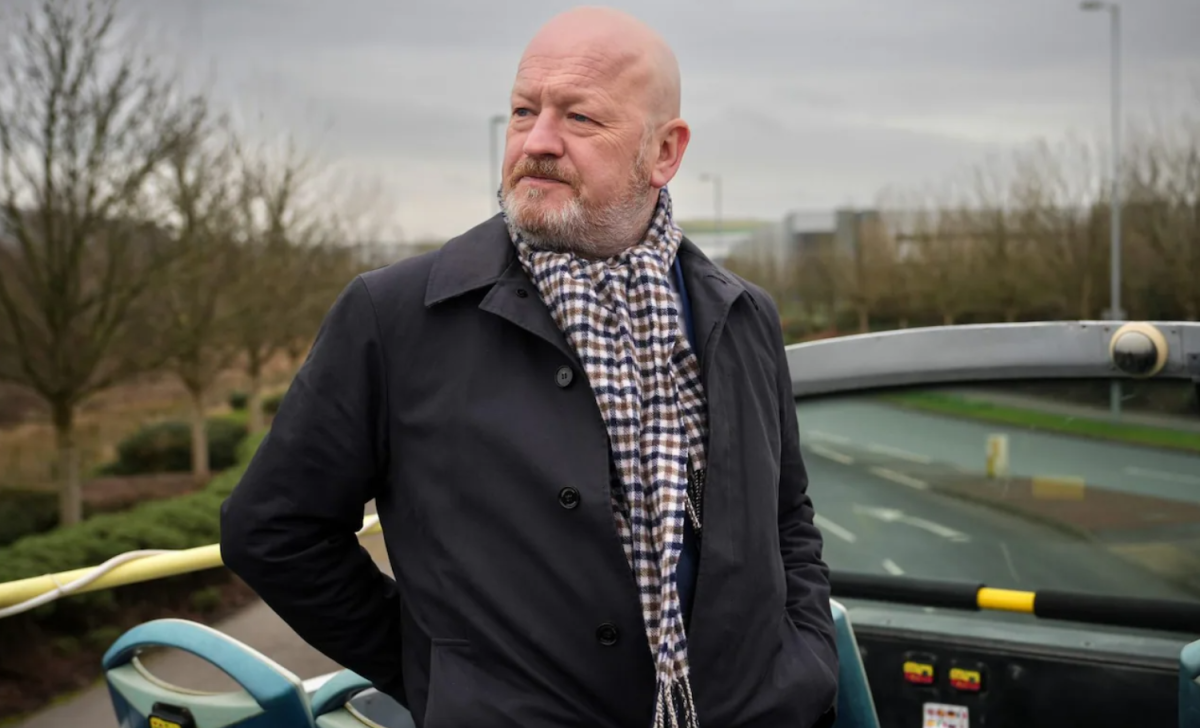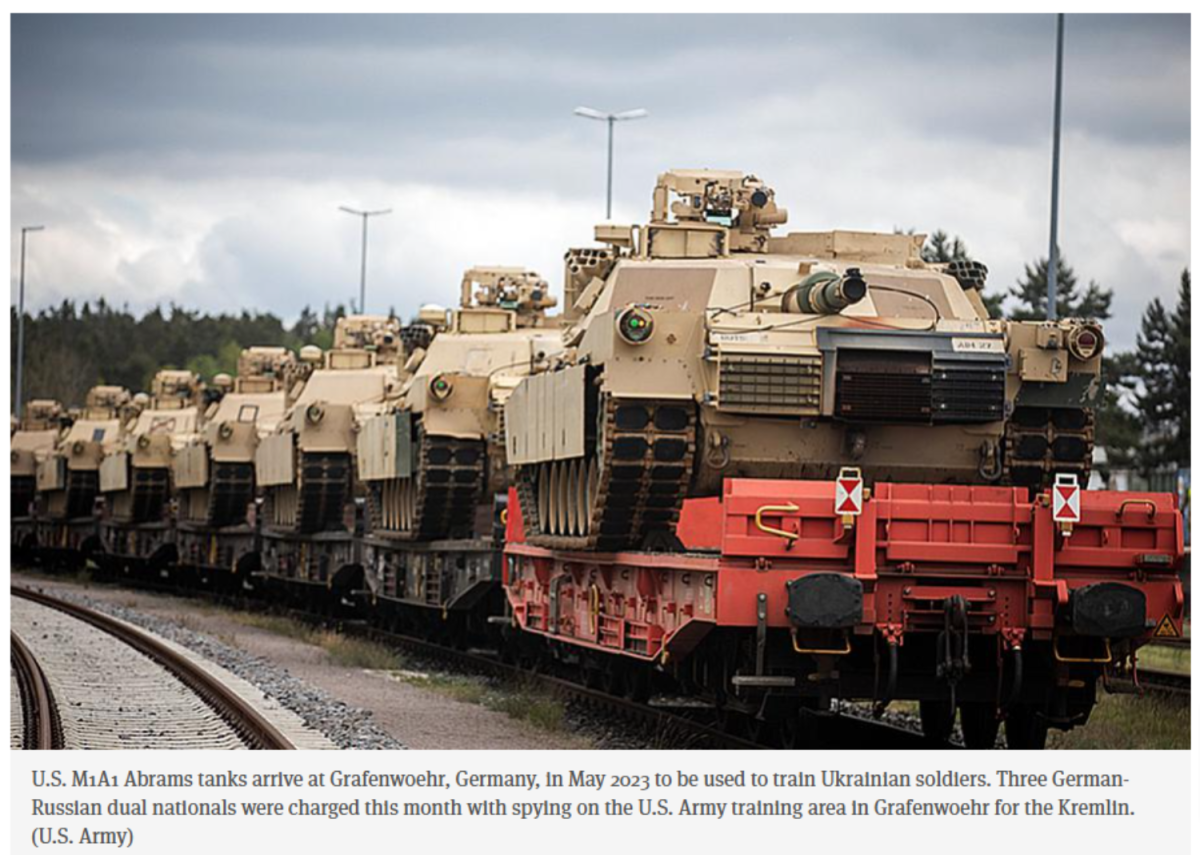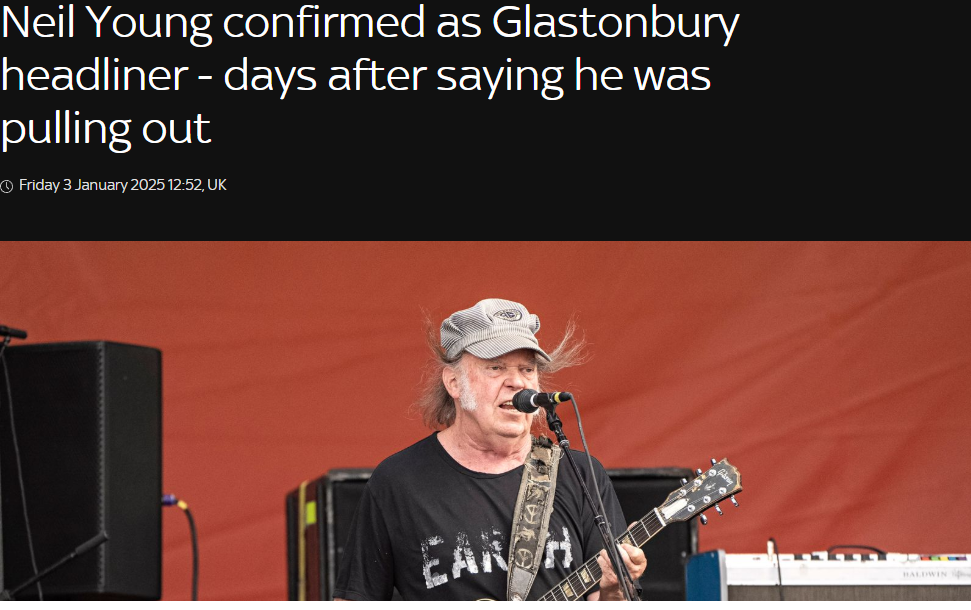-
Posts
10,702 -
Joined
-
Last visited
Content Type
Events
Forums
Downloads
Quizzes
Gallery
Blogs
Everything posted by Social Media
-
Bill Maher has not held back his criticism of the "crazies" within the Democratic Party, making his views clear during a recent interview with the *Wall Street Journal*. Known for his sharp wit and unapologetic commentary, Maher explained why his comedy increasingly targets the left, despite being a lifelong Democrat. “You’re damn right I do, because you give me more material,” Maher said when asked about his satirical focus on the left. “I’m a comedian. I’m going to go where the gold is.” He emphasized the unique power of humor in political discourse, stating, “I think humor is one of the best avenues to get at the truth, maybe the best, especially in politics. When someone laughs, it is involuntary. So you can make the audience admit that they agree with you even if they really don’t want to.” Maher criticized the left’s inability to tolerate differing viewpoints, agreeing with the interviewer’s observation that the “woke” often fail to laugh at themselves. “This is one of the issues I have with the left,” he remarked. “They can’t stand to have to endure a moment of hearing something they don’t already agree with. Not that the right doesn’t do it, too, but the left does it worse.” He also addressed backlash from his liberal friends regarding his decision to host conservative guests on his show, such as Ann Coulter. “‘I had liberal friends who just couldn’t stand that. Just think about what this is,’” Maher said, pausing for effect. “‘That’s people who hate me for who I won’t hate.’” He repeated for emphasis, “‘People who hate me for who I won’t hate.’” When asked why many on the left struggle to engage civilly with those they disagree with, Maher attributed it to virtue signaling. “It’s in their psychological profile. They just have this need for virtue signaling, and to have their friends—and I guess everybody on social media—think of them as the good people. ‘We’re the good people. We know who’s good. And it’s us.’” Despite his criticism, Maher dispelled rumors of switching political allegiances. “Many Republicans say, ‘Maybe we could get Bill Maher.’ No, you can’t. What you can get is Bill Maher being honest about the left. I’m not going to join your team that doesn’t believe in democracy.” However, Maher acknowledged the appeal of the Republican Party to some voters, explaining, “There are voters who are not particularly enamored with Trump, not blind to his many flaws, but they just feel that the crazy on the left is somehow worse. I don’t agree with them, but I get it. I don’t hate them for voting for him.” Maher also critiqued the younger generation for what he perceives as a lack of perspective, particularly those educated at elite universities. “They have no idea, no perspective. Of course, if they’ve gone to elite universities, i.e., a—h— factories, they’ve been indoctrinated into this idea that they live in the worst country in the world at the worst time in history, when actually they live in, with all our flaws, still probably the best, with definitely indisputably the best time in history.” While Maher called for a “metaphorical colonic” for the country, he rejected the notion that America needs a revolution. “I like America. America does not need a revolution,” he said, pushing back against extremist rhetoric. Maher expressed concern that Democrats risk losing elections by failing to connect with voters. “They often say, when they lose elections, ‘We didn’t get our message out.’ Yes, you did. They just didn’t like it. You got it out loud and clear.” Concluding with his signature bluntness, Maher turned his sights on Vice President Kamala Harris, declaring, “You lost a crazy contest to an actual crazy person. Congratulations.” Based on a report by NYP 2024-01-06
-
German Chancellor Olaf Scholz recently shared his thoughts on handling tech mogul Elon Musk, who has been exchanging sharp comments with German politicians. Scholz advised against engaging with Musk, suggesting it is better not to “feed the troll.” “There are a lot of people on social media who want to attract attention with snappy slogans,” Scholz said during an interview with the German magazine *Stern*, published on Saturday. “I don’t believe in courting Mr. Musk’s favor,” he added, “I’m happy to leave that to others.” Scholz further emphasized that as a Social Democrat, he is accustomed to dealing with wealthy media entrepreneurs who do not appreciate Social Democratic policies and openly express their disdain. His remarks came amidst an ongoing back-and-forth with Musk, a tech billionaire closely allied with President-elect Donald Trump. Musk, recently appointed by Trump to lead the Department of Government Efficiency (DOGE) alongside Vivek Ramaswamy, has used his social media platform to mock Scholz, referring to him as “Oaf Schitz” and predicting his defeat in the upcoming parliamentary elections on February 23. This jab came shortly after Musk wrote an op-ed in the German newspaper *Welt am Sonntag*, where he expressed strong support for Germany’s far-right Alternative for Germany (AfD), led by Alice Weidel. In the op-ed, Musk criticized Germany's bureaucracy and regulatory overreach, endorsing AfD’s immigration policies. Following the publication of Musk’s op-ed, the German government accused him of interfering in the country's electoral process. However, they downplayed his efforts to boost support for the AfD, stating that “freedom of expression also includes the greatest nonsense.” In his New Year’s address, Scholz subtly responded to Musk’s provocations, saying, “In our debates, one can be forgiven for sometimes thinking the more extreme an opinion is, the more attention it will garner.” Scholz expressed greater concern over Musk’s support for the AfD, a party with elements that are right-wing extremist, promote reconciliation with Putin’s Russia, and seek to weaken transatlantic relations. “It’s much more worrying than such insults,” Scholz told *Stern*. Musk, who has been increasingly involved in U.S. politics, backing Trump’s 2024 presidential campaign with a significant financial contribution of at least $250 million, is set to speak with Weidel, the AfD leader, on January 9 via his platform, X. Germany is heading into its February election amidst political turmoil, following the collapse of Scholz's coalition in November. Based on a report by The Hill 2024-01-06
-
President-elect Donald Trump announced on Friday that former Fox News contributor Tammy Bruce will soon be joining his State Department. Bruce is set to work alongside Marco Rubio, the nominee for United States Secretary of State, as the new Spokesperson for the U.S. Department of State. “It is my great honor to announce that Tammy Bruce will be joining our incredible Nominee for United States Secretary of State, Marco Rubio, as Spokesperson for the U.S. Department of State,” Trump shared on his social media platform, Truth Social. Bruce had been a contributor at Fox News until Friday, a role she held since joining the network in 2005. She is also an accomplished author of several books. A Fox News spokesperson confirmed Bruce’s departure, stating, “Tammy Bruce has been an extremely valued contributor at FOX News Media for nearly 20 years, and we wish her all the best in her new role.” Trump praised Bruce, calling her a “highly respected political analyst” who had firsthand experience with “the lies and fraud of the Radical Left.” According to her bio on Fox News, Bruce was once a registered Democrat and was involved in several left-wing political campaigns during the 1990s. She later transitioned to using her experience as a liberal community organizer to oppose and expose the leftist agenda. Previously, she led the National Organization for Women. “As one of the longest-serving News Contributors, Tammy has brought TRUTH to the American People for over two decades,” Trump wrote. “I know she will bring that same strength of conviction and fearless spirit to her new position as State Department Spokesperson.” Bruce joins a growing list of former Fox News personalities who have been appointed to positions in Trump’s incoming administration, including Sean Duffy, Pete Hegseth, Janette Nesheiwat, and Monica Crowley. Notably, Bruce’s new role does not require Senate confirmation. Based on a report by The Hill 2024-01-06
-
Four years ago, after the upheaval of the Trump administration, President Joe Biden entered office with a promise to restore alliances and uphold democracy. The responsibility for executing this vision on the global stage fell to Secretary of State Antony Blinken, a seasoned diplomat and close Biden confidant with two decades of collaboration with the president. Their message to allies and adversaries alike was clear: a stable and predictable era of American leadership was on the horizon. However, Blinken’s tenure quickly became a trial by fire. The chaotic and widely criticized withdrawal from Afghanistan marked a difficult start. This was soon overshadowed by Russia’s full-scale invasion of Ukraine, a conflict that presented a generational challenge to global stability. More recently, Hamas’s brutal attack on Israel and the subsequent war in Gaza further plunged the region into turmoil, with ripple effects destabilizing both international and domestic political climates. Despite these challenges, Blinken has remained steadfast in advocating Biden’s vision of strong, proactive diplomacy as the solution to the world’s most pressing issues. "We continue to believe that the quickest way, the most effective way to have an enduring end to Gaza is through an agreement on a cease-fire that brings the hostages home. The two biggest impediments to getting that over the finish line — and we’ve been so close on several occasions and as we speak today, we’re also very close — there have been two major impediments, and they both go to what drives Hamas. One has been whenever there has been public daylight between the United States and Israel and the perception that pressure was growing on Israel, we’ve seen it: Hamas has pulled back from agreeing to a cease-fire and the release of hostages. And so there are times when what we say in private to Israel where we have a disagreement is one thing, and what we’re doing or saying in public may be another. But that’s in no small measure because with this daylight, the prospects of getting the hostage and cease-fire deal over the finish line become more distant." As Biden’s administration nears its conclusion, the wars in Ukraine and the Middle East persist, showing no clear path to resolution. The potential return of Donald Trump to the White House raises further uncertainty. A new Trump administration is expected to adopt a markedly different approach, retreating from the alliances and international institutions that Blinken and Biden have worked to strengthen. This oscillation in American foreign policy has left observers questioning the country’s reliability and its evolving role in the global order. Throughout these turbulent years, Blinken has remained committed to the ideals of diplomacy and international cooperation. His efforts have underscored the complexities of balancing immediate crises with long-term strategic goals. The legacy of his tenure, like the administration he serves, will likely be judged in the context of these extraordinary challenges and the outcomes they yield. Antony Blinken Says the War in Gaza Won’t Define His Legacy Based on a report by NYT 2024-01-06
-
A number of posts have been reported and removed for being off topic, mainly instigated by @frank83628 Replies also removed. This topic is not about Ukraine and Russian war. Why South Korea Should Go Nuclear
-
A couple of troll posts removed along with a very immature sarcastic follow up troll post @Will B Good 17. ASEAN NOW news team collects news articles from various recognised and reputable news sources. The articles may be consolidated from different sources and rewritten with AI assistance These news items are shared in our forums for members to stay informed and engaged. Our dedicated news team puts in the effort to deliver quality content, and we ask for your respect in return. Any disrespectful comments about our news articles or the content itself, such as calling it "clickbait" or “slow news day”, and criticising grammatical errors, will not be tolerated and appropriate action will be taken. Please note that republished articles may contain errors or opinions that do not reflect the views of ASEAN NOW. If you'd like to help us, and you see an error with an article, then please use the report function so that we can attend to it promptly.
-
An inflammatory hate speech troll post making personal attacks and comment on moderation has been removed @nobodysfriend
-
President Joe Biden awarded the Presidential Citizens Medal to former Rep. Liz Cheney, R-Wyo., and Rep. Bennie Thompson, D-Miss., at a ceremony held at the White House on Thursday. Cheney and Thompson served as vice chair and chair, respectively, of the House Jan. 6 committee, which conducted a thorough 18-month investigation into the events surrounding the Capitol riot of January 6, 2021, and former President Donald Trump’s involvement. Thompson and Cheney’s recognition comes amidst continued tension, with Trump openly criticizing the Jan. 6 committee and its members. The former president has suggested punitive actions against them, including calling for their imprisonment. Trump has also pledged to pardon individuals convicted for their roles in the Capitol attack, further deepening the political divide. In response, Thompson dismissed Trump’s threats, stating that the committee acted within the bounds of the law. During the ceremony, Biden underscored the critical importance of democracy and the role of citizenship in safeguarding it. “I think it's pretty damn simple. Our democracy begins and ends with the duties of citizenship. That’s our work for the ages. That’s what all of you — and I mean this — all of you embody,” he remarked. As each recipient's name was announced, they stepped forward to receive their medal from the president. Cheney received a particularly enthusiastic response when her name was called. The announcer recognized her for “putting the American people over party,” prompting loud applause and a standing ovation from the audience. While Cheney herself did not comment on the recognition, her contribution to the committee’s work and her outspoken stance on upholding democratic principles have garnered widespread attention. In addition to Cheney and Thompson, more than a dozen Americans were honored during the ceremony. These included former senators Chris Dodd of Connecticut, Bill Bradley of New Jersey, Nancy Kassebaum of Kansas, and Ted Kaufman of Delaware, along with veterans, marriage equality activists, women’s rights advocates, and civil rights leaders. Based on a report by NBC 2024-01-04
-
Australia has taken a pioneering step in the global effort to protect children online, implementing a law that restricts minors under the age of 16 from accessing social media. This groundbreaking legislation places Australia at the forefront of online safety, with Julie Inman Grant, the nation’s eSafety Commissioner, playing a critical role in its enforcement. An American by birth and a former tech industry veteran, Inman Grant has become a central figure in this ambitious initiative, offering insights that could guide similar efforts in the United States. "For too long, the burden for safety has fallen on the parents themselves or the children, rather than the platforms," Inman Grant explained in an interview. The new law shifts the responsibility onto social media companies, requiring them to adopt measures to prevent children from accessing platforms with potentially harmful content. This comes as countries worldwide wrestle with the growing influence of the tech industry and its impact on young users. The political momentum for this legislation in Australia was significant. Driven by concerns from parents, politicians, and media campaigns advocating for stricter online safety measures, the government acted decisively. Prime Minister Anthony Albanese emphasized the need for social media platforms to demonstrate greater responsibility, noting that their previous efforts to protect children had been insufficient. While some refer to the new policy as a "social media ban," Inman Grant prefers the term "social media restriction bill." She highlighted its numerous exemptions, ensuring a balanced approach. "We’re not trying to cut kids off," she said, pointing to the ongoing role of messaging apps and online gaming platforms that facilitate healthy connections and problem-solving skills. However, platforms with addictive features, opaque algorithms, and harmful content are under scrutiny. Implementing the law is no small task. Verifying the age of users remains a complex challenge. "It’s not just a technological issue; it’s an ecosystem issue," Inman Grant remarked. She emphasized the importance of balancing safety with privacy, noting that methods such as biometrics, government IDs, and digital tools are being explored to enforce the restrictions. Critics, particularly social media companies, argue that the law represents government overreach and risks stifling free speech. Inman Grant counters that the legislation was driven by parental demand. "Parents feel like it’s just too hard," she said, referencing the overwhelming number of parental controls on platforms that are often difficult to navigate. The law aims to simplify this by placing the burden of safety on tech companies. The U.S. is also considering measures to protect children online, such as the Kids Online Safety Act. However, legislative efforts have stalled due to political divisions. Inman Grant believes Australia’s approach could serve as a model, advocating for proactive measures like embedding safety features into technology from the outset. She likened this to how the automotive industry evolved to include life-saving features like seat belts and airbags. Reflecting on her unique position as an American leading Australia’s online safety efforts, Inman Grant sees potential for international collaboration. "I would be absolutely delighted if the U.S. had an online safety regulator," she said, underscoring the importance of bipartisan support and a focus on harm remediation. Australia’s experiment in online safety is ambitious, but it offers valuable lessons for other nations grappling with the challenges of the digital age. By shifting responsibility onto platforms and embedding safety measures into technology, the hope is to create a safer, more accountable online environment for young users. Based on a report by Politico 2024-01-04
-
Vice President-elect JD Vance stirred debate on Thursday by sharing an op-ed penned by Elon Musk, in which the tech billionaire voiced support for Germany’s far-right political party, Alternative for Germany (AfD). Vance posted the piece on the platform X, calling it an “interesting piece” while clarifying he was not endorsing AfD, as he viewed Germany's elections as a matter for its own citizens. In his post, Vance explained, “We hope to have good relations with all Germans.” However, he criticized the portrayal of AfD in U.S. media, asserting that “American media slanders AfD as Nazi-lite, but AfD is most popular in the same areas of Germany that were most resistant to the Nazis.” Musk’s guest editorial, featured in the German newspaper *Welt am Sonntag*, raised eyebrows both in Germany and abroad. The Tesla CEO, a close ally of President-elect Donald Trump, argued that Germany faces an impending “economic and cultural collapse.” In his view, the far-right AfD is the only political force capable of reversing the nation’s trajectory. “Only the AfD can save Germany,” Musk proclaimed in a separate post on X. The op-ed sparked immediate backlash. The commentary editor of *Welt am Sonntag* resigned in protest, and the German government accused Musk of attempting to influence its February elections. German government spokesperson Christiane Hoffmann remarked during a media briefing, “Freedom of expression also includes the greatest nonsense,” underscoring the controversial nature of Musk’s intervention. Germany’s ambassador to the U.S., Andreas Michaelis, responded to Vance’s remarks on Bluesky, noting the complexities of German history. “Historical context can be tricky,” Michaelis wrote. “While some areas you are referring to resisted the Nazi party early on, others did not, or later became strongholds of the regime. Germany’s history reminds us how important it is to challenge extremism in all its forms.” Musk’s increasing involvement in global politics has drawn scrutiny. He defended his foray into Germany’s political landscape, asserting that his substantial investments in the country’s technological and industrial sectors grant him a stake in its future. His criticisms have not stopped at Germany; Musk recently targeted British Prime Minister Keir Starmer and the Labour Party-led government. The February 23 election in Germany has significant implications for the country’s future. While the AfD remains the second most popular party, its far-right policies, including calls for mass deportations and a strong anti-immigration stance, have made it an isolated force in German politics. All major parties have categorically ruled out forming a coalition with the AfD. Amid the growing political tensions, Musk has also called for German Chancellor Olaf Scholz to resign, adding further fuel to the fire. Whether these statements will influence Germany’s electorate remains to be seen, but one thing is clear: Musk’s political interventions are becoming a defining feature of his global presence. As debates rage on, both Musk and Vance find themselves at the center of a broader conversation about the role of influential figures in international politics and the dangers of extremism in an increasingly polarized world. Based on a report by The Hill 2024-01-04
-
Tory leader Kemi Badenoch has reignited calls for a national inquiry into the grooming scandals that have plagued towns and cities across the UK, describing such an investigation as "long overdue." Her statement follows mounting criticism of government minister Jess Phillips, who recently declined Oldham Council's request for a public inquiry into child sexual exploitation in the town. Badenoch took to the platform X, asserting, “The time is long overdue for a full national inquiry into the rape gangs scandal. Trials have taken place all over the country in recent years, but no one in authority has joined the dots. 2025 must be the year that the victims start to get justice.” Her plea was echoed by Alicia Kearns, the shadow safeguarding minister, who wrote to Phillips urging a reversal of the government's decision regarding Oldham. Kearns emphasized, “We have asked for planned Conservative measures to be enacted, to reverse the Oldham refusal, and for a statutory inquiry into grooming and rape gangs.” The grooming scandals, which have spanned over a decade, were first brought to public attention in 2013. Reports uncovered harrowing instances of girls as young as 11 being groomed and raped in towns such as Oldham, Rochdale, Rotherham, and Telford. A 2014 report by Professor Alexis Jay revealed the horrific scale of abuse in Rotherham between 1997 and 2013, where approximately 1,400 girls were abused, while police and social services failed to act. This was followed by the Independent Inquiry into Child Sexual Abuse (IICSA), also chaired by Professor Jay. In its 2022 final report, the inquiry found that children across England and Wales continued to suffer sexual exploitation by organized networks in what it described as the "most degrading and destructive ways." Among its key recommendations was a legal requirement for institutions working with children to report suspicions of sexual abuse. In contrast to Badenoch's stance, Jess Phillips, Labour MP for Birmingham Yardley, defended her position in a letter to Oldham Council dated October last year. She wrote that while she understood the "strength of feeling" surrounding the issue, she believed that commissioning a local inquiry was the responsibility of Oldham Council rather than the government. Phillips’ response drew backlash from Conservative figures, including former Home Secretary Suella Braverman, who accused her of “letting down victims.” Survivors and critics, however, also directed their frustrations at Badenoch and the Conservative government. Sammy Woodhouse, a survivor of the Rotherham abuse, criticized Badenoch’s call for action, stating, “I’ve met with your party for 12 years about this when you were in power. I asked for an inquiry into every town and city, none of you cared. Now you need the vote you want to speak on it?” Reform UK leader Nigel Farage added to the condemnation, remarking, “Talk is cheap. The Conservatives had 14 years in government to launch an inquiry. The establishment has failed the victims of grooming gangs on every level.” The demand for accountability persists as survivors, campaigners, and politicians on both sides of the aisle grapple with the government’s role in addressing systemic failures. With calls for justice growing louder, the question remains whether 2025 will indeed be the year meaningful action is taken to confront this enduring national tragedy. Based on a report by Sky News | Independent 2024-01-04
-
A troubling new survey has revealed that nearly half of Britons no longer believe the police will respond to reports of burglary or car theft. This growing crisis in public confidence highlights the challenges faced by law enforcement and the consequences of systemic underfunding. According to the poll, 46 percent of adults have abandoned the expectation that a home burglary will be properly investigated, while 49 percent hold the same belief regarding car thefts. The situation is particularly dire among older citizens, with 54 percent of those aged 65 and above expressing doubt that officers would attend a burglary at their property. Adding to the alarming findings, eight percent of Britons admitted they have delayed contacting the police after experiencing a crime. Of these, a quarter believed that officers would take too long to respond, while over a third felt the police would not have the time or resources to take the matter seriously. This erosion of trust comes despite a 2023 directive from then-Home Secretary Suella Braverman mandating that police attend every reported burglary. However, the National Police Chiefs' Council (NPCC) has acknowledged that resource constraints make such a policy challenging. An NPCC spokesperson noted, "An immediate response may not be possible or appropriate if the resident is away or does not want us to attend." The Police Federation, representing 145,000 officers across England and Wales, echoed these concerns, citing insufficient resources to meet the demand for consistent responses to crimes. The survey also highlighted broader issues, with two in five adults expressing a lack of confidence that police would respond effectively to street assaults. These findings have drawn sharp criticism from the Liberal Democrats, who commissioned the poll. Lisa Smart, the Liberal Democrats' Home Affairs spokesperson, described the results as "scandalous" but not surprising given the current state of law enforcement. "This crisis in confidence is a direct consequence of years of neglect and mismanagement from the previous Conservative government," she stated. "They decimated frontline policing and left our communities to pay the price. People deserve to feel confident that if they do fall victim to crime, the police will turn up and properly investigate. The new government must act urgently to restore the public's trust in policing. That requires a return to proper community policing—keeping our communities safe and reducing crime with more bobbies on the beat." Recent statistics paint a bleak picture of police effectiveness. In the three months leading up to June 2024, officers in England and Wales failed to solve 31,980 domestic burglaries—equivalent to three out of every four cases. Out of 42,488 recorded investigations during the same period, only 2,494 resulted in charges, a mere six percent. The Liberal Democrats have called on ministers to take decisive action by guaranteeing that all domestic burglaries are attended to and thoroughly investigated. The party argues that such measures are essential to rebuilding public trust and ensuring the safety of communities across the country. Based on a report by Daily Mail 2024-01-04
-
In a landmark moment for historical transparency, the names of approximately 425,000 individuals suspected of collaborating with the Nazis during the German occupation of the Netherlands have been published online for the first time. These names come from a vast archive documenting investigations conducted through a special legal system established toward the end of World War II. Among those listed, more than 150,000 faced some form of punishment for their alleged actions. Until now, the full records of these investigations were only accessible by visiting the Dutch National Archives in The Hague, posing a significant barrier to those interested in delving into this chapter of history. The digitization effort, led by the Huygens Institute, marks a significant step toward making this archive more accessible. The Institute emphasized the importance of these records, stating, "This archive contains important stories for both present and future generations, from children who want to know what their father did in the war, to historians researching the grey areas of collaboration." The archive comprises files on various individuals, including war criminals, approximately 20,000 Dutch citizens who joined the German armed forces, and suspected members of the National Socialist Movement (NSB), the Dutch Nazi party. The online database provides basic information, such as names, birthdates, and birthplaces, but it does not indicate whether a person was found guilty or the nature of their alleged collaboration. For further details, users must visit the National Archives and request the corresponding file, demonstrating a legitimate interest in doing so. While the initiative promises to shed light on a dark chapter in Dutch history, it has sparked concerns about the potential misuse of sensitive information. To address these concerns, the initial release of online data has been carefully limited. Rinke Smedinga, whose father was an NSB member and worked at Camp Westerbork—a transit camp from which many were deported to concentration camps—expressed apprehension about the potential backlash. "I am afraid that there will be very nasty reactions," Smedinga told the Dutch publication DIT. Tom De Smet, director of the National Archives, acknowledged the delicate nature of this endeavor. "Relatives of both collaborators and victims of the occupation had to be taken into account," he explained. Yet, De Smet also emphasized the potential for healing and understanding. "Collaboration is still a major trauma. It is not talked about. We hope that when the archives are opened, the taboo will be broken." In a letter to parliament dated December 19, Culture Minister Eppo Bruins underscored the broader significance of this move, writing, "Openness of archives is crucial for facing the effects of [the Netherlands'] difficult shared past and to process it as a society." As this newly accessible archive begins to reveal its secrets, it offers an opportunity for the Netherlands to confront and better understand the complexities of its wartime history—a journey that may help bridge the divide between past and present. Based on a report by BBC 2024-01-04
-
Ahmed Fouad Alkhatib, a 34-year-old Palestinian American with deep roots in Gaza, has become a beacon of clarity in the often polarized discourse surrounding the Israel-Palestine conflict. With a pragmatic and humane approach, his voice has resonated in the aftermath of the October 7, 2023, Hamas-led attacks, positioning him as a leading advocate for peace and mutual understanding. Alkhatib's rise to prominence stemmed from his ability to express truths that many Palestinians, particularly those in Gaza or the West Bank, cannot safely articulate. As an outspoken critic of Hamas and a defender of Palestinian rights, he navigates a treacherous middle ground that few dare to tread. His efforts have earned both admiration and hostility. “Ahmed is unique because he does speak out, and he takes a lot of shit for it,” said Gershon Baskin, an Israeli hostage negotiator and close ally. “He’s a very clear, sound voice for peace, reason, and logic.” In widely read outlets such as the *Wall Street Journal*, *The Atlantic*, *Foreign Policy*, and the *Times of Israel*, as well as during interviews on CNN, ABC, and NPR, Alkhatib has articulated positions that challenge entrenched narratives. He has condemned Hamas unequivocally, describing the group as harmful to the Palestinian cause, and this outspoken stance has occasionally necessitated a security detail for his protection. Simultaneously, he has criticized the unrelenting brutality of Israel’s military actions, urging empathy for all victims, regardless of their nationality. In the wake of the October attacks, Alkhatib observed a stark shift in public discourse. “This off-the-shelf messaging came down,” he said. “There was no space, whatsoever, to call for the release of hostages. I was equally horrified by the dehumanization of all Gazans as terrorists.” These statements reflect his refusal to accept simplistic, dehumanizing narratives, emphasizing instead a nuanced understanding of the conflict. Despite personal tragedy—31 members of his extended family have perished in Israeli airstrikes since the conflict began—Alkhatib remains steadfast in his commitment to peace. He proudly identifies as pro-Palestinian and has championed humanitarian initiatives, such as a project to establish a civilian airport in Gaza. Yet, he has also distanced himself from certain U.S.-based Palestine supporters who advocate for indiscriminate boycotts or glorify violence. These positions underscore his independence of thought and dedication to fostering constructive dialogue. Hamas had accomplished its goal of sabotaging nonviolent political solutions to the conflict. Additionally, the group’s propaganda, which I experienced firsthand in Gaza, glorified its terrorism and demonized the word “peace,” claiming it was equivalent to betrayal, weakness, surrender and the embrace of Jews. It also focused on Islamizing Palestinian society, which had historically been secular. I remember signing up for a summer camp in 2002, thinking it would be full of fun recreational activities. Though I hadn’t realized it, this camp was organized by Hamas propagandists who proselytized the virtues of armed resistance and being a good Muslim. I told my mom that I wouldn’t be attending the rest of the boring weeklong camp. Even as a child I saw through its cheap propaganda. Through its indoctrination and Islamization of Gaza’s youth, Hamas was breeding future generations of radicalized Palestinians. I remember the “protests” that Hamas regularly organized: They took students out of class, bused them to border checkpoints and Israeli military positions, and had them throw stones at soldiers. These field trips would often end up with young Palestinian children being maimed by Israel Defense Forces fire. Hamas wanted scenes of dead Palestinians for its recruitment efforts and propaganda and to undermine the Palestinian Authority-led peace process. Many Palestinians and their allies, particularly outside Gaza, aren’t willing to condemn Hamas and acknowledge its undeniable role in the suffering of Gazans. Hamas has been a disaster to Palestinian aspirations for freedom and self-determination. It must be ruthlessly criticized and rejected, especially because it is serving the goals and interests of anti-peace Israeli factions. The slaughter on Oct. 7 was meant to destabilize the region and fulfill the destructive aspirations of Hamas and its backers. The group counted on an overwhelmingly violent Israeli reaction to reinvigorate the spirit of resistance born out of Palestinian suffering. Hamas sought to hide its failures and inability to produce any progress in Gaza behind this brutal attack. Hamas counted on international sympathy for the unbearable civilian casualties—including dozens of my own family members—resulting from the Israeli offensive. Hamas bet that these deaths would shield it from criticism. Based on a report by Foreign Policy | WSJ 2024-01-04
-
As 2025 begins, the political landscape in the UK reveals a challenging start for Labour, six months into their government. Recent polling data from December paints a sobering picture of public sentiment, offering insights into favourability ratings, government approval, and key concerns dominating the national conversation. Keir Starmer, the Labour leader and prime minister, faces a stark decline in his personal favourability. According to polling conducted for *The Times* in mid-December, Starmer’s net favourability reached a new low of -41. A significant majority of Britons (66%) expressed a negative view of the prime minister, while only 25% held a positive perception. This marks a continuing trend of diminishing public confidence in Starmer’s leadership. On the Conservative side, Kemi Badenoch, the recently appointed Tory leader, is also experiencing a decline in public sentiment as familiarity with her grows. In early November, 39% of Britons were undecided about Badenoch. However, by December, this figure dropped to 33%, and her net favourability rating fell from -20 to -31. Nigel Farage, leader of Reform UK, remains a divisive figure. His favourability numbers have remained relatively stable, with 28% of Britons viewing him positively and 62% unfavourably, giving him a net rating of -34. Despite this, Farage poses a significant threat to the Conservative Party, as 45% of their 2024 voters hold a favourable view of him, although Badenoch’s 55% approval among Tory voters still provides a buffer. The broader perception of Labour's government mirrors Starmer’s personal ratings, with approval at its lowest point since taking office. A late-December survey revealed that 62% of Britons disapprove of the government’s record, while only 17% approve. Among Labour’s own voters, opinions are mixed, with 38% disapproving and 34% expressing approval. Disappointment runs deep among Labour’s base. Nearly half (46%) of Labour voters surveyed in December said the party’s performance had not met their expectations, while only 28% felt the government was doing well. This sentiment is even more pronounced among the general public, where just 10% believe Labour is performing satisfactorily. Public concerns reflect enduring challenges. The economy remains the most pressing issue, cited by 52% of Britons as a top concern. Immigration and health follow closely, at 46% and 40%, respectively. These priorities vary significantly across party lines. For Labour voters, the economy and health dominate equally, with 55% and 53% prioritizing these issues, while immigration ranks lower at 28%. Conversely, immigration is the primary concern for Tory voters, with 71% listing it as a top issue, followed by the economy at 59% and health at 33%. As Labour embarks on its first full year in government, the data underscores the significant hurdles it faces in aligning public expectations with policy delivery. While the economy, immigration, and health remain focal points for the electorate, restoring faith in leadership and government performance will be critical in shaping public opinion in the months to come. Based on a report by YouGov Public Data 2024-01-04
-
Former Rochdale MP Simon Danczuk has accused Tony Lloyd, a prominent Labour figure, of discouraging him from raising concerns about the ethnic background of grooming gang perpetrators to avoid harming the party’s electoral prospects. Danczuk, who represented Rochdale from 2010 to 2017, alleges that Lloyd, then the Labour Party's parliamentary chairman, prioritized political expediency over addressing the root causes of abuse. Danczuk’s claims center around the infamous 2012 convictions of nine men for sex trafficking and related offences in Rochdale. Among the perpetrators, eight were of British Pakistani origin, and one was an Afghan asylum seeker. Subsequent investigations led to convictions of an additional 33 men, with Greater Manchester Police issuing an apology for failing to act on earlier reports of abuse. As a vocal campaigner on the issue, Danczuk brought whistleblowers to testify before the Commons home affairs select committee. However, he says his efforts were met with resistance within his own party. Speaking to *The Telegraph*, Danczuk revealed, “At no time did Yvette Cooper, who was then the shadow home secretary, seek my advice on the matter.” He further stated that both Lloyd and Jim Dobbin, another Labour MP, warned him not to connect the grooming scandal with the perpetrators' ethnicity. Danczuk detailed his grievances in a 2017 letter to Professor Alexis Jay, who chaired a major inquiry into child sexual abuse. In the letter, he wrote: “Tony Lloyd made efforts within Parliament to dissociate the grooming scandal from the Asian Muslim community – that is a matter of public record. Privately, he told me such links should not be emphasized.” The ex-MP claims that Lloyd threatened him over his criticism of Greater Manchester Police’s handling of the case, particularly after Danczuk publicly questioned the Chief Constable's performance in a *Mail on Sunday* article. “Tony phoned and threatened me,” Danczuk alleged. “He said that if I ever repeated such comments, he would ‘bounce me from Rochdale to Westminster.’ My then-wife was present when I took the call.” Danczuk believes Lloyd's reluctance to highlight the ethnic background of the perpetrators was politically motivated. “I am of the view that Tony did not want the abuse of children linked with the Asian Muslim community because it could have an adverse electoral impact for him in the election for police commissioner and for Labour more generally,” he said. Tony Lloyd went on to serve as Greater Manchester’s police and crime commissioner in 2012 and returned to Parliament as Rochdale MP in 2017. Lloyd passed away in January last year, and Jim Dobbin died in 2014. Danczuk has since echoed calls for a dedicated national inquiry into grooming gangs, aligning with recent statements from Conservative minister Kemi Badenoch. “The 2017 child abuse inquiry focused on historical and Westminster-related abuse,” he told *The Telegraph*. “There should be a national inquiry into grooming gangs, with the power to prosecute those who turned a blind eye or actively discouraged investigations. My concern is that if a Labour government sets the remit for such an inquiry, it could be constructed to yield few meaningful results.” His remarks come as Labour faces fresh criticism for refusing to hold a public inquiry into grooming gangs in Oldham. Tech billionaire Elon Musk weighed in on the issue, calling Labour’s stance “disgraceful.” The allegations underscore ongoing tensions over how political considerations intersect with justice and accountability in cases of systemic abuse. Based on a report by Daily Telegraph 2024-01-04
-
Three dual German-Russian nationals have been charged in Germany with spying on U.S. military installations and plotting attacks in support of Russian interests. The allegations involve plans to disrupt NATO logistics and retaliate against Western support for Ukraine amid its ongoing war with Russia, according to German prosecutors. The men, identified as Dieter S., Alexander J., and Alex D. due to Germany’s strict privacy laws, face serious charges, including espionage and planning sabotage. The federal prosecutor's office stated that Dieter S., described as the plot’s mastermind, was additionally charged with acting as a sabotage agent, conspiring to cause explosions, and committing arson. Authorities claim the group intended to disrupt NATO operations critical to supporting Ukraine's war effort. Their activities allegedly included surveilling U.S. military facilities, including the Army training area at Grafenwoehr, a key site for training Ukrainian forces. The case gained public attention in April when Dieter S. and Alexander J. were arrested in Bayreuth, roughly 20 miles from Tower Barracks in Grafenwoehr. Subsequent raids on their homes and workplaces uncovered evidence linking them to the alleged plot. Prosecutors said their efforts were aimed at interfering with rail transport and compromising security at military installations, all designed to undermine logistical support for Ukraine. Dieter S. reportedly became involved with Russian intelligence during his time fighting for the Donetsk People’s Republic in eastern Ukraine in 2014. This self-proclaimed republic has been a focal point of conflict since Russia's initial invasion of Ukraine that year. German prosecutors have linked the Donetsk People’s Republic to violent actions against civilians and intense combat operations, classifying it as a foreign terrorist organization. In October 2023, Dieter S. allegedly began collaborating with a Russian intelligence handler, sharing information about potential sabotage targets in Germany. He passed along photographs of military transports and offered to carry out bombings and arson attacks at military and industrial sites. He also pledged to disrupt railway lines essential for transporting military equipment. Alexander J. and Alex D. reportedly joined the conspiracy in March 2023, though specific details of their involvement remain undisclosed. Of the three suspects, Alex D. remains at large, prompting an ongoing search by German authorities. The charges underline the risks of foreign espionage and sabotage as tensions between Russia and the West remain high over the war in Ukraine. NATO facilities, particularly those supporting Ukrainian forces, have emerged as strategic targets in the conflict’s broader geopolitical battle. German prosecutors emphasized the seriousness of the allegations, noting that the actions not only threatened the safety of U.S. personnel but also undermined Germany's security and sovereignty. If convicted, the trio could face lengthy prison sentences for their roles in the conspiracy. Based on a report by Stripes 2024-01-04
-
Meghan, Duchess of Sussex, is making a highly anticipated return to the spotlight with the debut of her new Netflix lifestyle series, "With Love, Meghan." The streaming giant has confirmed the show will begin airing on January 15, offering viewers a blend of practical advice and candid conversations. Produced by Archewell Productions, the company she co-founded with Prince Harry, the series showcases Meghan's creative approach to daily life. Netflix described the series as one where Meghan “blends practical how-to’s and candid conversation with friends, new and old.” According to the platform, the show will highlight Meghan’s focus on “embracing playfulness over perfection” and demonstrate “how easy it can be to create beauty, even in the unexpected.” The series features appearances by notable guests such as Mindy Kaling, chef Roy Choi, and culinary icon Alice Waters. Together, they explore activities like cooking, gardening, and more, encouraging viewers to “roll up their sleeves” and join in the experience. Beyond her Netflix venture, Meghan has launched her lifestyle brand, American Riviera Orchard, which aligns with the themes of her new show. This latest move comes as Meghan continues to carve out a space in the lifestyle and wellness industry, building on her earlier successes as a former actress and creator of the now-archived blog, "The Tig." Netflix previously collaborated with the Duke and Duchess of Sussex on the docuseries "Harry & Meghan," which offered an intimate look into their lives, including their decision to step back from royal duties and relocate to the United States. However, as noted by royal commentator Richard Fitzwilliams, this latest series arrives at a critical juncture for the couple. Fitzwilliams remarked on Meghan’s calculated approach, saying, “Her intention in the video is to look relaxed, confident and, above all, symbolize the freedom they claim they have found.” He further explained that the social media account is likely a key tool for promoting Meghan’s upcoming projects, including American Riviera Orchard, while offering her greater control over her narrative. As 2025 begins, the stakes are high for the Sussexes. With her entrepreneurial spirit and a fresh slate of creative projects, Meghan is poised to reestablish herself as a leading voice in lifestyle and wellness. Whether "With Love, Meghan" and her broader ventures can secure enduring success remains to be seen, but interest in her journey shows no sign of waning. Based on a report by CNN | NYP 2024-01-04






